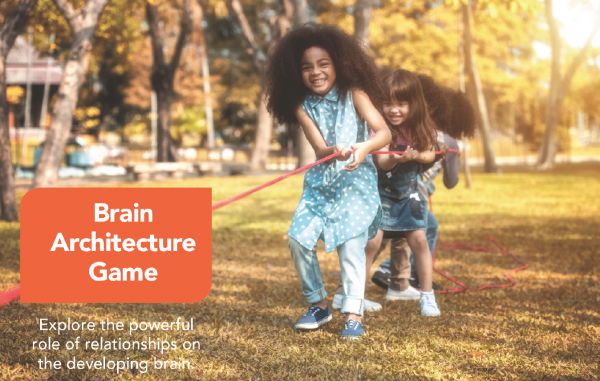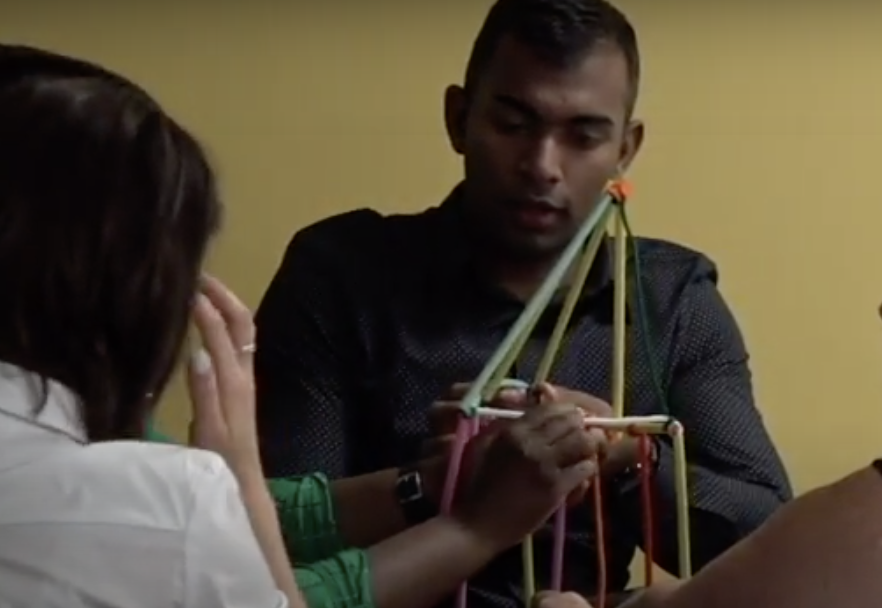Explore the powerful role of relationships on the developing brain.

The Brain Architecture Game is an experiential learning tool that builds understanding of the powerful role of experiences on early childhood brain development – what promotes it, what derails it, and what are the consequences for society.
Participants in the Brain Architecture Game explore how the first five years of life are critical in building brain development for the rest of our life. The keys to brain development are communication and relationships between child and parent, healthy stress, or toxic stress.
During the Brain Architecture Game, participants build a mock brain out of pipe cleaners and straws. The goal of the game is to build a brain that is tall, which represents functional brain ability, but is also as strong as possible so that it won’t collapse in later years under the burdens of stress.
Participants will build a child’s brain based on the scenarios provided. Positive experiences earn a pipe cleaner and a straw for support. Negative experiences? Pipe cleaner, but no straw. After the initial period of early childhood brain development, weights must be hung from the structure of the brain when life hands out stressors.
Afterward, groups use the notes in their Life Journals to discuss the experiences that strengthened, or weakened, the architecture of their developing brains.
This facilitated session takes approximately 90 minutes from start to finish.
